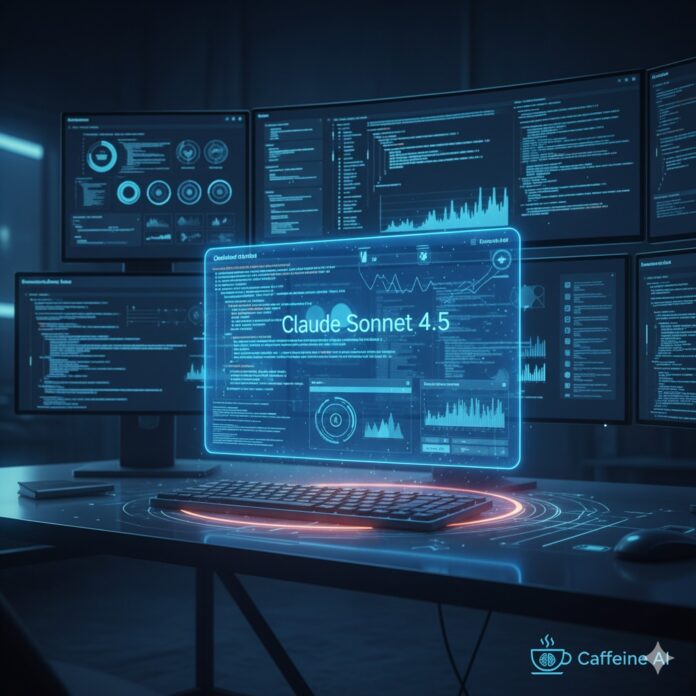Anthropic has launched Claude Sonnet 4.5, an upgraded AI model built to strengthen coding, reasoning, and agent-based problem-solving. The company says the new version offers clear improvements over its earlier Opus 4.1 release, particularly in handling complex agents and demanding computational tasks.
For developers, the update brings a sharper coding experience. A refreshed Claude Code terminal interface and a new Visual Studio Code extension aim to make workflows smoother. A checkpoints feature allows large tasks to run securely, with the option to roll back to earlier states if necessary. Claude can now analyze data, create files, and generate visual insights in formats familiar to professionals across industries.
The model is being rolled out across the Claude Developer Platform, Amazon Bedrock, and Google Cloud’s Vertex AI, with pricing unchanged from the previous Sonnet 4 release. For API users, two new features support long-running tasks. A context editing tool helps clear outdated information, while a memory tool lets Claude store and consult data beyond its immediate window of interaction.
Anthropic is also trialing a new project called “Imagine with Claude.” Aimed at Max plan users, the experiment allows software to be generated dynamically without pre-written scripts, showcasing how AI could one day create code in real time. Alongside this, the Claude for Chrome extension has been made available to all waitlisted users, broadening access beyond traditional developer settings.
These advances are expected to have an impact on platforms like Caffeine AI, which already integrates Claude at the core of its operations. Built on the Internet Computer blockchain by the DFINITY Foundation, Caffeine uses Claude to turn natural language prompts into full-stack Web3 applications, covering everything from backend logic to on-chain deployment. The upgrade to Sonnet 4.5 could address sticking points in backend workflows and sharpen Caffeine’s ability to deliver fast, reliable code generation.
With Sonnet 4.5, Anthropic is positioning Claude as a benchmark tool for coding and computational work, while directly strengthening partner platforms that rely on its performance. For users, the effect is likely to be seen in more capable AI-driven coding, quicker problem-solving, and expanded possibilities for building complex systems with simple prompts.
Dear Reader,
Ledger Life is an independent platform dedicated to covering the Internet Computer (ICP) ecosystem and beyond. We focus on real stories, builder updates, project launches, and the quiet innovations that often get missed.
We’re not backed by sponsors. We rely on readers like you.
If you find value in what we publish—whether it’s deep dives into dApps, explainers on decentralised tech, or just keeping track of what’s moving in Web3—please consider making a donation. It helps us cover costs, stay consistent, and remain truly independent.
Your support goes a long way.
🧠 ICP Principal: ins6i-d53ug-zxmgh-qvum3-r3pvl-ufcvu-bdyon-ovzdy-d26k3-lgq2v-3qe
🧾 ICP Address: f8deb966878f8b83204b251d5d799e0345ea72b8e62e8cf9da8d8830e1b3b05f
🪙 BTC Wallet: bc1pp5kuez9r2atdmrp4jmu6fxersny4uhnaxyrxau4dg7365je8sy2q9zff6p
Every contribution helps keep the lights on, the stories flowing, and the crypto clutter out.
Thank you for reading, sharing, and being part of this experiment in decentralised media.
—Team Ledger Life


